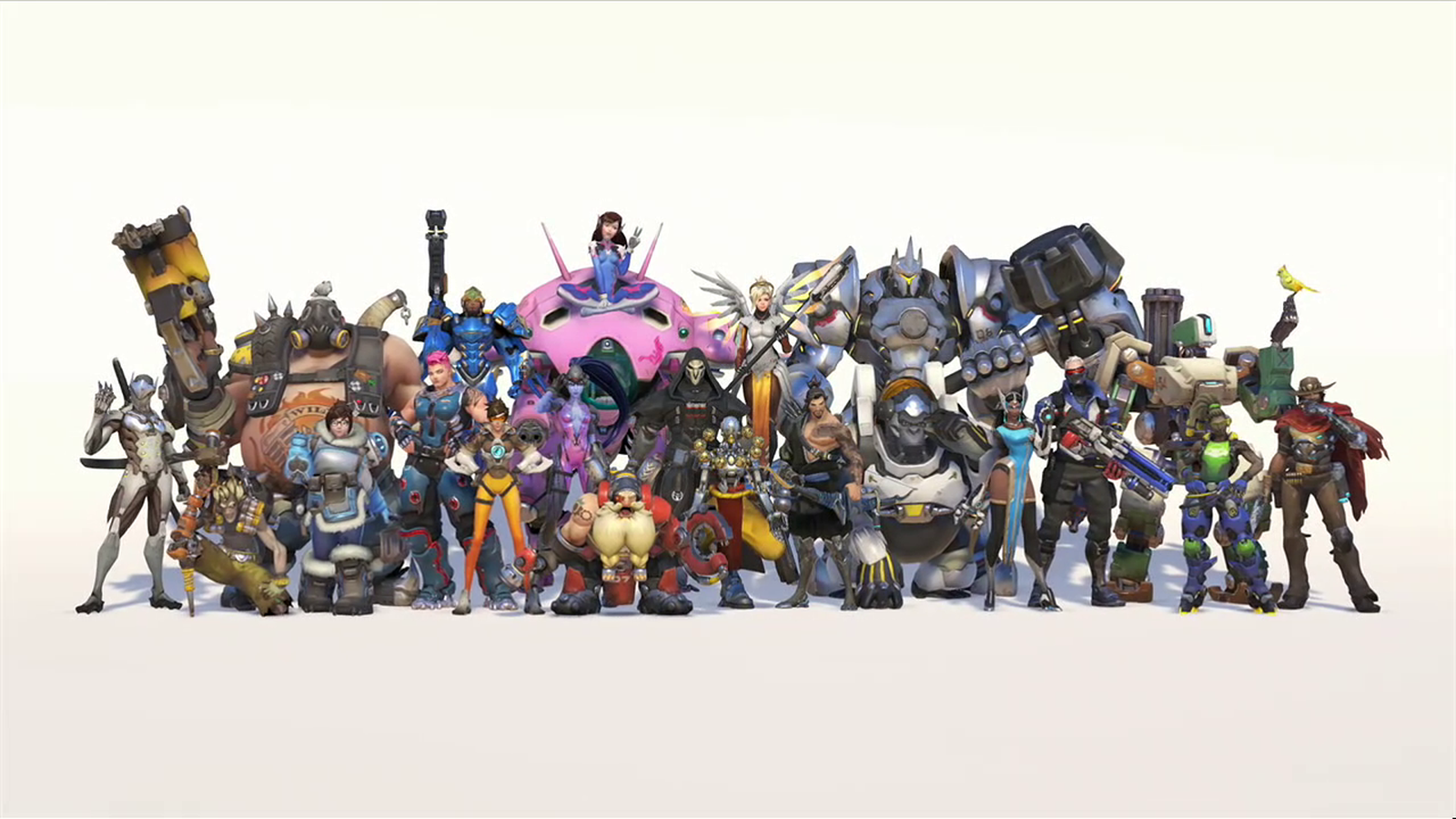With a very successful marketing campaign creating hype and a massively popular beta that was very well received, Overwatch seems poised to be another smashing success for Blizzard. One particular aspect of the game that drew many would-be players in is the game’s roster of 21 heroes. This group draws from a pool of many nationalities, archetypes, and playstyles. Each of the heroes distinctly stand out from each other, and each one has their own dedicated playerbase. This aspect is done very well, and in this piece, I’m going to dig into how Blizzard accomplished this in terms of design and gameplay.
One of A Kind
To start things off, each hero in this game is aesthetically distinct and unique. Even if you didn’t know them by name, you can still recognize them by their design or their weapon, and in a game of many heroes, it’s easy to remember them all. Although certain heroes fit in the same theme or group, (like the Japanese warrior brothers Hanzo and Genji or the rejected Mad Max extras Junkrat and Roadhog) they are still distinct in how they play. Hanzo and Genji may be brothers, but Hanzo prefers to snipe from afar with his arrows while Genji gets up close and personal with his shruikens. This prevents overlap in playstyle between heroes and makes it so each one can stand on their own.

The game’s 21 heroes are sorted into 4 roles (offense, defense, tank, and support), but they have different purposes than others within their role. For example, the German hammer-wielding tank hero Reindhart prefers to stay back with his team putting up his protective shield, while the gorilla scientist Winston prefers to check in on the enemy team with his leap and cause havoc with his lightning gun. Lúcio and Mercy are both healing supports but they do their job in completely different ways. Lúcio runs around the walls giving his team passive healing and speed buffs with his weapon while Mercy prefers to stick with more powerful teammates, giving them far better healing (although only for one hero at a time) and damage buffs to boot. Many characters fill different archetypes for FPS games, with the rocket-firing Pharah calling back to the arena shooters of old, or the fast, straightforward, assault rifle-wielding Soldier 76 bringing out the tropes of modern AAA shooters. The flexibility in playstyle that the heroes in each pre-specified role offer means that players can find heroes they enjoy in every role, instead of being tailored to one or two characters.

Diverse With Purpose
I’m no social justice warrior, but a big strength of Overwatch’s hero selection is its diversity. Its cast draws from many walks of life: male, female, robot, and different ethnicities. While this doesn’t necessarily enrich any gameplay elements, the game pulls off diversity without making it feel forced, as it doesn’t outspokenly pat itself on the back for its cast. However, a much more important diversity that this game pulls off is visual design. I touched on how the characters feel distinct from each other in terms of gameplay, but each character is also very distinct in how they are visually designed. None of them look too much alike which makes them distinct and memorable. This positively affects gameplay as the ease of recognizing a specific hero on the opponent’s team (or your own team) lets you recall their abilities and adjust your strategy accordingly.

Overall, Overwatch’s diverse roster of heroes contains playstyles and abilities for many different types of players. Each member of its large cast of playable heroes is unique and stands out in visual and gameplay design. Its selection finds an almost perfect balance between variety and depth without being too overwhelming which creates a system of characters that is perfectly manageable for new players to dive into.
Who’s your favorite Overwatch character? Let me know in the comments.







Published: May 22, 2016 07:11 pm